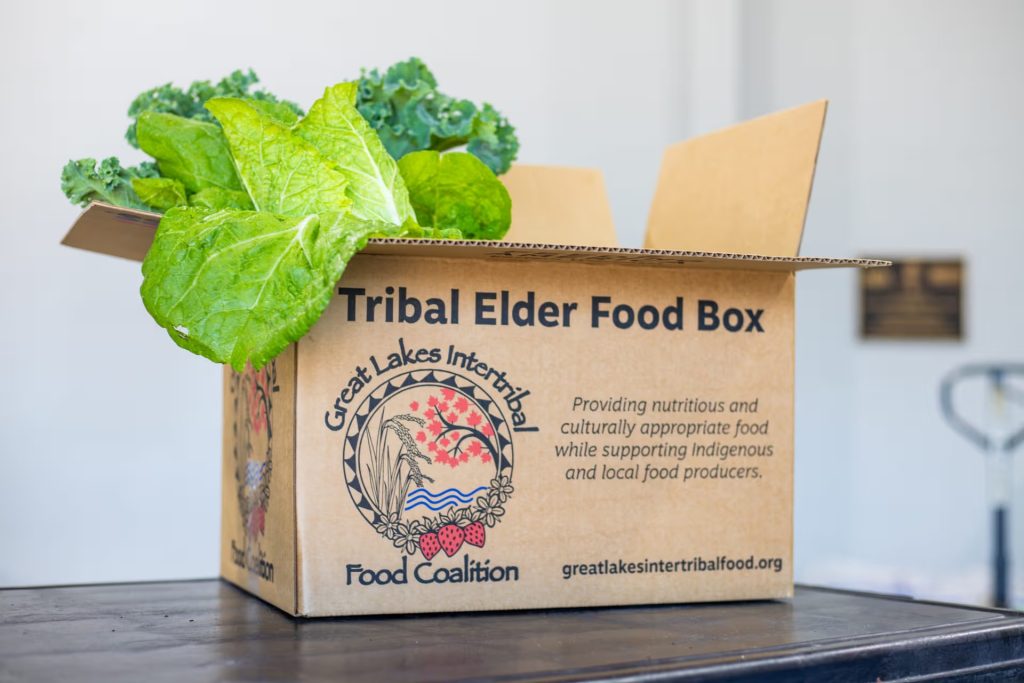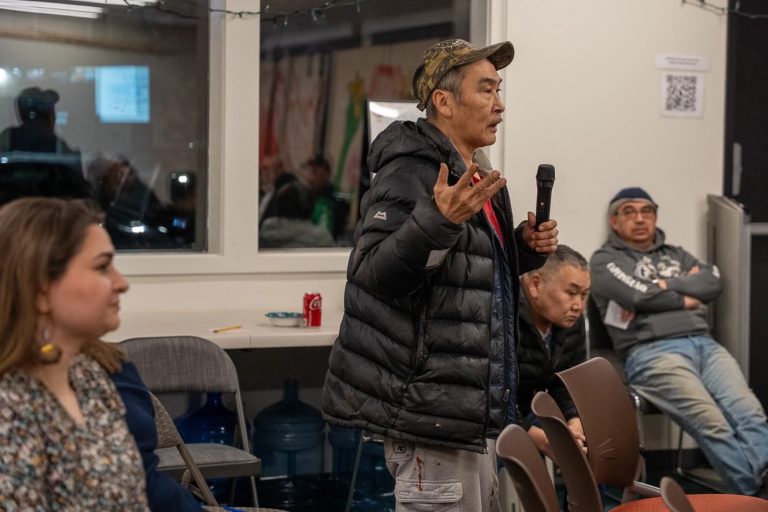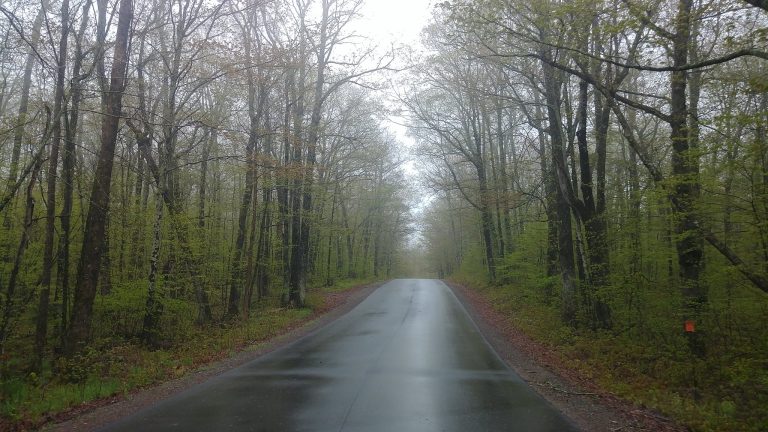Podcast: Play in new window | Download | Embed
Photo: The Tribal Elder Food Box Program helps feed Native elders across Wisconsin. (Courtesy Feeding America Eastern Wisconsin)
It’s been more than a year since the Government Accountability Board released a study and issued recommendations addressing food insecurity among tribes.
However, neither Congress nor the U.S. Department of Agriculture (USDA) have acted on them.
Brian Bull of Buffalo’s Fire reports.
In its findings released in July 2024, the GAO found that Native households were more than twice as likely to deal with food shortages or problems securing nutritious meals.
Kathryn Larin is the GAO’s director. She mentions a few common factors.
“Just the more rural and remote locations of tribal communities. They are harder to reach. There is less access to a variety of nutritious foods. And the cost of the foods is higher, than often you find in more urban areas.”
Among the recommendations the GAO has made is letting tribes administer more Food and Nutrition Service programs, and addressing dual participation in Supplemental Nutrition Assistance Program (SNAP) and food distribution programs.
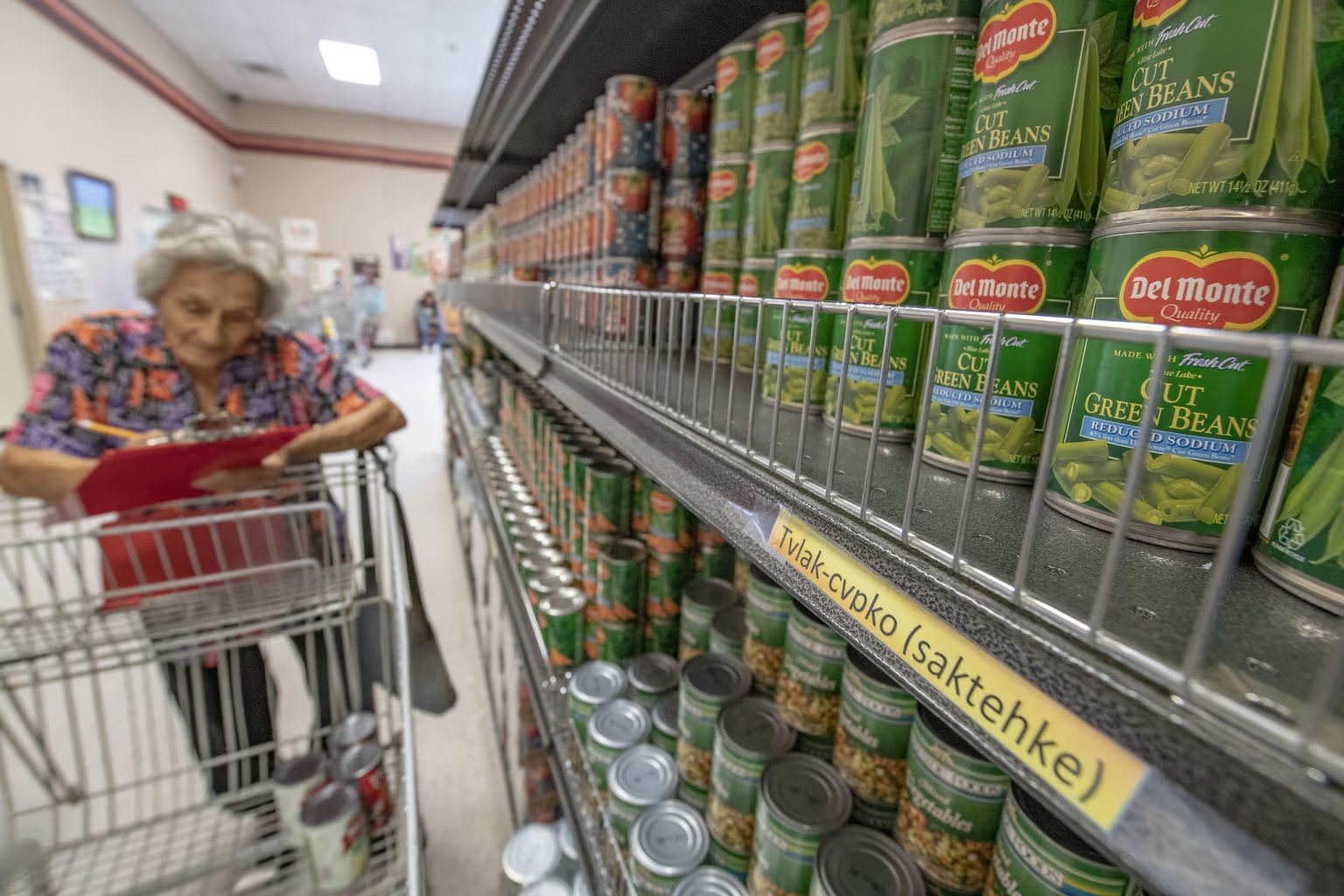
Martha Yahola shops at the Food Distribution Program at Seminole Nation of Oklahoma in 2018. (Photo: Preston Keres / USDA)
Marlon Skenandore is an Oneida Nation councilor who worked with the GAO during its research and surveying of tribes. He says traditional foods are important, but so is affordability and access.
“Wild rice is super expensive now. And the berries are getting up there. So it’s all about direct access. I always think of an idea of how we can subsidize some of our traditional indigenous foods. And we kind of do that now, we have a tribal elder food box that happens twice a month that is mostly Indigenous sourced.”
The GAO’s six recommendations are intended to improve knowledge of food security among tribal communities and improve services, but while Congress and the USDA have agreed with the recommendations, nothing has been done yet.
Mary Greene Trottier is a Spirit Lake tribal member, who also serves as the director of the National Association of Food Delivery Programs on Indian Reservations. She says studies and recommendations are fine, but now it’s time to collaborate towards remedies.
“We know the problems. We know we can address the solutions. We are boots on the ground and just listening to our voices and utilizing that knowledge.”
The USDA says it’s actively working to address the GAO’s recommendations, but did not address any specifics on a timeline. And two Congressional committees that work in Indian Affairs did not return requests for comment.
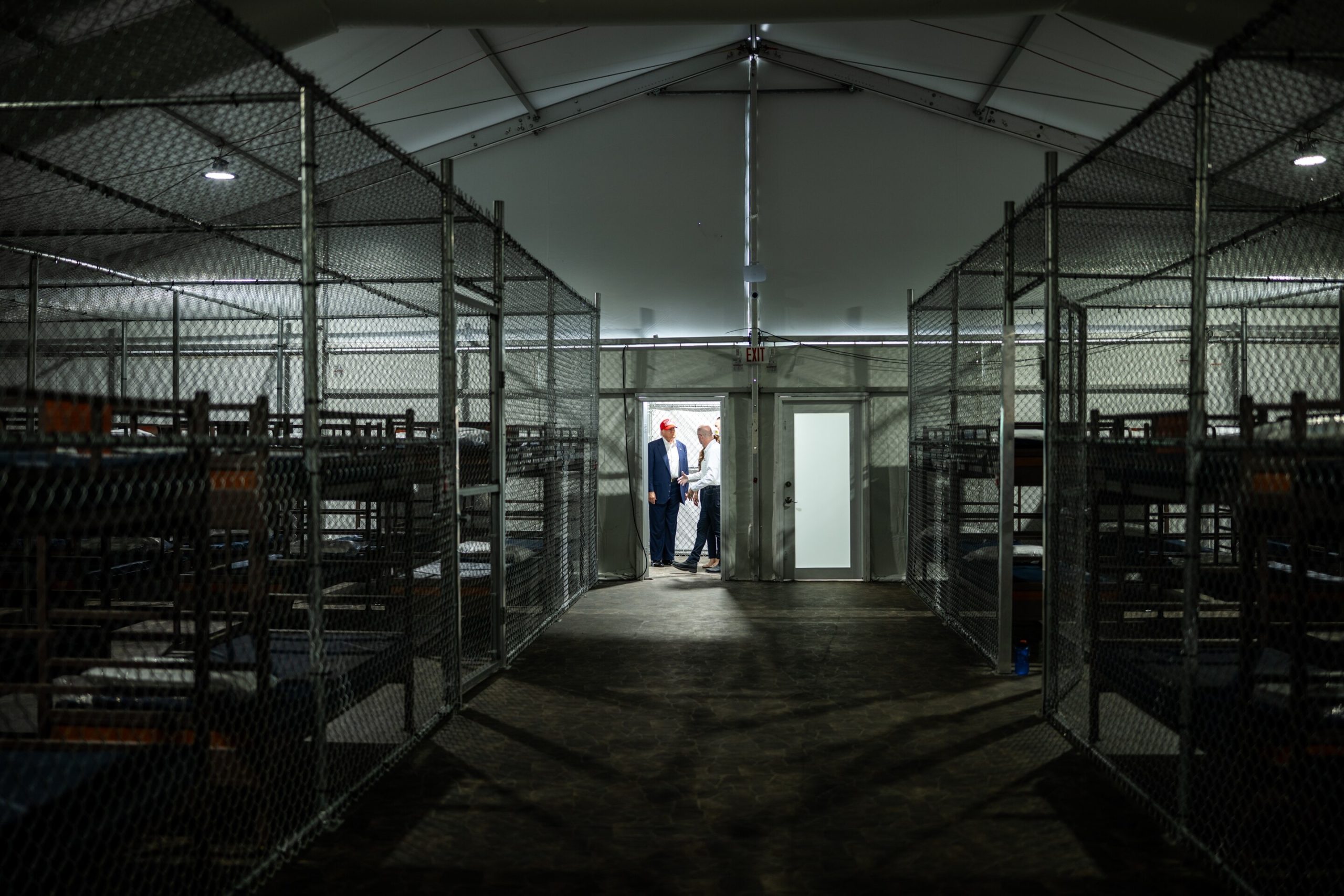
Interior of the immigration detention facility known as “Alligator Alcatraz” with President Donald Trump in the background.
The Miccosukee Tribe of Indians of Florida is taking action in its opposition of the so-called Alligator Alcatraz – an immigrant detention facility in the Everglades.
In a press release Tuesday, the tribe said it is filing suit as an intervening plaintiff in a case being brought by Friends of the Everglades, Center for Biological Diversity, and Earthjustice.
The suit is against the state and the federal government. The tribe is raising concerns over environmental impacts and safety.
The tribe says the facility is on traditional homelands and near traditional Miccosukee and Seminole villages.
In a statement, Chairman Talbert Cypress said “the Miccosukee Tribe is committed to ensuring that ancestral lands in Big Cypress will not become a permanent detention facility.”
Chairman Cypress says they have reached out to the state and federal governments expressing concerns, but have not heard of a closing date for the facility, so they are taking legal action.
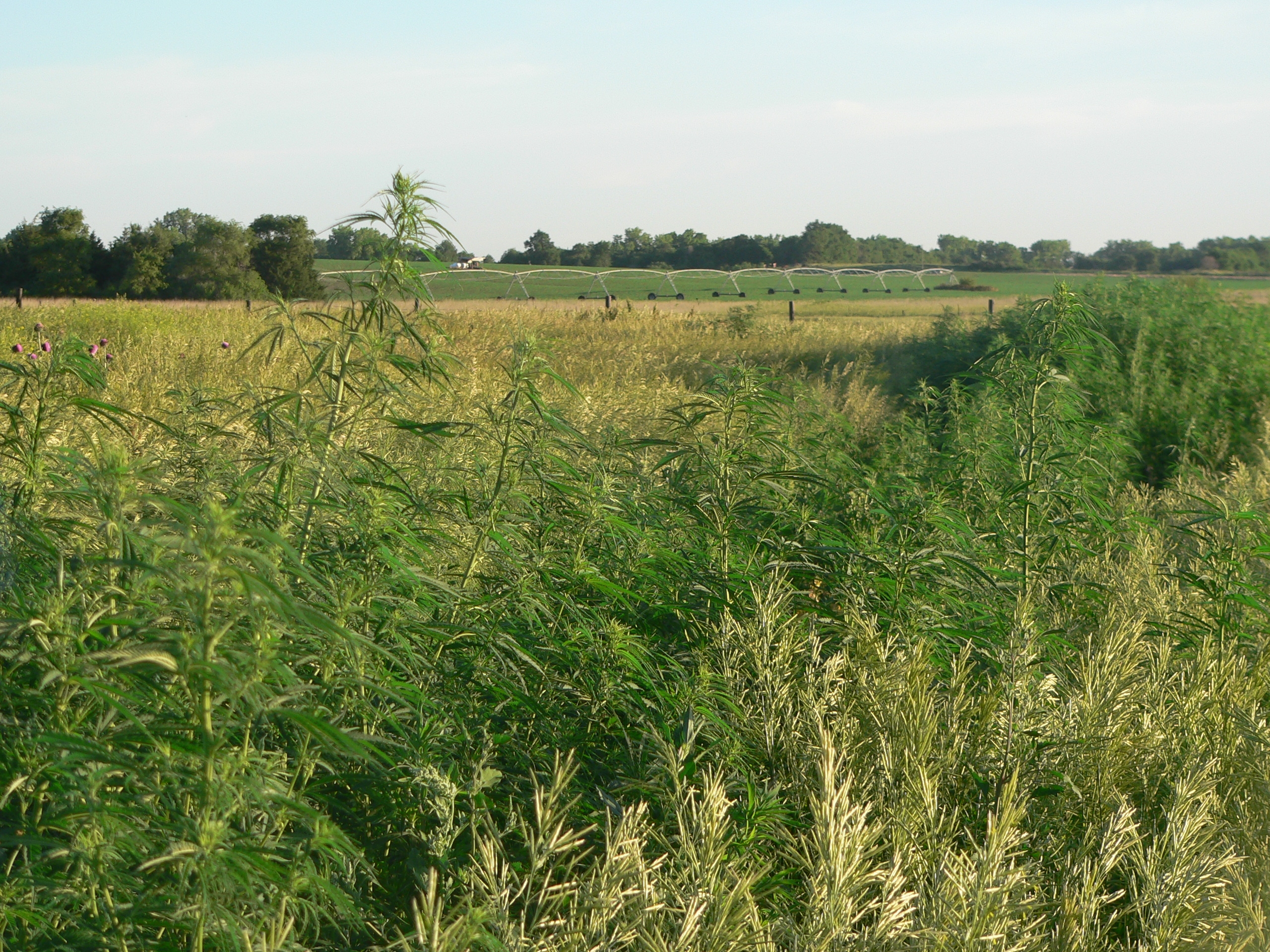
Cannabis growing in a ditch in Buffalo County, Nebraska; photographed in 2017. (Photo: Ammodramus / Wikimedia)
The Omaha Tribal Council has adopted a cannabis regulatory code to establish the first medical and adult-use cannabis system in Nebraska.
According to a press release Tuesday, the tribe is asserting its sovereignty with the action and building a sustainable economy.
The move comes after voters in the state approved medical cannabis last year.
The tribe says a phased rollout will begin this year.
Get National Native News delivered to your inbox daily. Sign up for our daily newsletter today.
